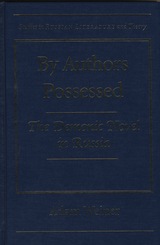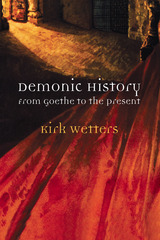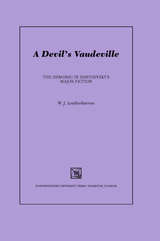
Weiner contends that the theme of demonism increasingly infects the narrative point of view from Gogol's Dead Souls to Dostoevsky's The Devils and Bely's Petersburg, until Nabokov exorcised the demonic novel through his fiction and his criticism. Starting from the premise that artistic creation has always been enshrouded in a haze of moral dilemma and religious doubt, Weiner's study of the demonic novel is an attempt to illuminate the potential ethical perils and aesthetic gains of great art.

In this ambitious book, Kirk Wetters traces the genealogy of the demonic in German literature from its imbrications in Goethe to its varying legacies in the work of essential authors, both canonical and less well known, such as Gundolf, Spengler, Benjamin, Lukács, and Doderer. Wetters focuses especially on the philological and metaphorological resonances of the demonic from its core formations through its appropriations in the tumultuous twentieth century.
Propelled by equal parts theoretical and historical acumen, Wetters explores the ways in which the question of the demonic has been employed to multiple theoretical, literary, and historico-political ends. He thereby produces an intellectual history that will be consequential both to scholars of German literature and to comparatists.

In fresh, often surprising readings of Dostoevsky's individual works, Leatherbarrow shows how such a "language" articulates a series of concerns linked to views expressed elsewhere—in Dostoevsky's journalism and letters—on the question of Russia's relationship to Western Europe. His study also explores the narrative and generic implications of the way Dostoevsky inscribes the demonic in his fictional works—implications that point to a new understanding of familiar concepts in the work of this Russian master. Highly original, deftly argued and written, Leatherbarrow's work offers Dostoevsky specialists and general readers alike an opportunity to rediscover and reassess the rich complexities of some of the world's greatest literature.
READERS
Browse our collection.
PUBLISHERS
See BiblioVault's publisher services.
STUDENT SERVICES
Files for college accessibility offices.
UChicago Accessibility Resources
home | accessibility | search | about | contact us
BiblioVault ® 2001 - 2024
The University of Chicago Press









